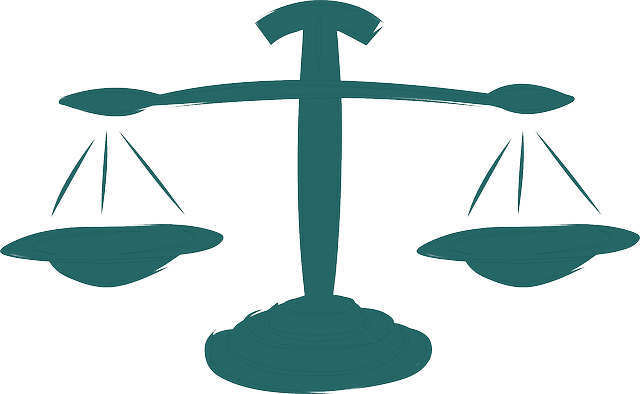Regulatory compliance prevents severe penalties and reputational damage through adherence to laws and regulations. Effective compliance relies on organized systems for gathering evidence like documentation, records, reports, and expert testimonies during audits or investigations (Types of Evidence Used in Criminal Prosecution). Internal controls, ethical practices, training, and awareness are key success factors; high-stakes cases require mastery of evidence management for jury trials. Non-compliance carries legal risks including fines, imprisonment, and damage to sustainability; strategic approaches like robust internal controls, employee training, and comprehensive documentation (Types of Evidence Used in Criminal Prosecution) ensure fairness and due diligence.
Regulatory compliance is a complex web that businesses must navigate to avoid legal pitfalls. This article explores crucial aspects of regulatory compliance, including understanding the basics, identifying common non-compliance issues, and delving into the types of evidence used in investigations—a key factor in many cases, akin to the Types of Evidence Used in Criminal Prosecution. We also dissect legal ramifications, offer strategies for effective compliance, and provide insights on mitigating penalties and consequences.
- Understanding Regulatory Compliance: The Basics
- Common Non-Compliance Issues and Their Impact
- Types of Evidence in Compliance Investigations
- Legal Ramifications: Penalties and Consequences
- Strategies for Effective Regulatory Compliance
Understanding Regulatory Compliance: The Basics

Regulatory compliance is a critical aspect of doing business, ensuring that companies adhere to laws and regulations governing their operations. It involves understanding and implementing policies, procedures, and practices that align with legal requirements set by various governmental bodies. Non-compliance can lead to significant penalties, reputational damage, and even criminal prosecution.
At the heart of regulatory compliance lies an effective system for gathering and presenting types of evidence used in criminal prosecution during audits or investigations. This includes documentation, records, reports, and expert testimonies that demonstrate a company’s adherence to regulations. An unprecedented track record across the country highlights successful compliance efforts, often emphasizing robust internal controls and a commitment to ethical practices. In high-stakes cases, where regulatory violations are tried in jury trials, a comprehensive understanding of evidence management becomes paramount for businesses to defend their positions and navigate complex legal landscapes.
Common Non-Compliance Issues and Their Impact

In the realm of regulatory compliance, non-compliance issues are prevalent and can have significant implications for businesses and organizations. Common problems often stem from a lack of understanding or deliberate disregard for set rules and regulations. These include errors in reporting, failure to maintain accurate records, and not adhering to specified industry standards. For instance, white collar and economic crimes, such as fraud, embezzlement, and money laundering, are prevalent and can lead to severe legal consequences. The consequences of non-compliance extend beyond legal penalties; they impact an entity’s reputation, customer trust, and long-term sustainability.
The impact of these issues is far-reaching, especially in the context of achieving extraordinary results. Philanthropic and political communities, for instance, must maintain integrity to ensure public trust. Non-compliance can disrupt operations, result in hefty fines, and even lead to criminal charges. During criminal prosecutions, types of evidence used include financial records, witness testimonies, and digital forensics. Effective compliance programs mitigate these risks by fostering a culture of awareness, regular training, and robust internal controls, ultimately ensuring organizations stay on the right path.
Types of Evidence in Compliance Investigations

In compliance investigations, the types of evidence collected play a crucial role in determining the outcome of any subsequent actions or legal proceedings. Unlike in criminal prosecutions where the primary goal is to secure convictions through a rigorous trial process, compliance inquiries often involve a broader scope of verification methods. Here, the focus shifts from proving guilt beyond a reasonable doubt to demonstrating adherence to established rules and regulations.
Just as various types of evidence are employed in criminal cases, such as physical clues, witness testimonies, and forensic analyses, compliance investigations rely on documentation, records, and expert opinions. These may include contracts, permits, financial statements, internal audit reports, and even interviews with key personnel. The strength of the case significantly depends on the quality and relevance of these evidence types, especially when presenting a robust defence for a respective business during high-stakes jury trials. An unprecedented track record of meticulous record-keeping and thorough compliance assessments can serve as powerful assets in navigating such legal landscapes.
Legal Ramifications: Penalties and Consequences

Non-compliance with regulations can lead to severe legal ramifications and penalties. When a company or individual violates set rules and guidelines, they may face criminal prosecution, which could result in substantial fines and imprisonment. The courts often consider several factors when determining punishments, including the nature of the offense, the intent behind it, and the impact on affected parties.
Types of evidence used in such cases are crucial for achieving extraordinary results for his clients. This includes financial records, communication logs, witness testimonies, and any physical proof relevant to the violation. Effective legal representation relies on gathering and presenting these pieces of evidence to mitigate consequences and ensure fairness throughout the process.
Strategies for Effective Regulatory Compliance

Staying compliant with regulations is a complex task, especially as laws and guidelines evolve constantly. To navigate this landscape successfully, businesses and individuals must adopt strategic approaches that go beyond mere knowledge of the rules. One effective method is to establish robust internal controls and procedures tailored to their specific industry and operations. This involves regular reviews and updates to ensure they remain relevant and effective.
Additionally, building a culture of compliance within the organization fosters accountability. Training programs should be implemented to educate employees at all levels about regulatory requirements and their roles in adherence. Encouraging open communication channels allows for the easy reporting of potential non-compliance issues. For high-stakes cases involving corporate and individual clients across the country, having comprehensive documentation and maintaining detailed records are crucial. Types of evidence used in criminal prosecution, such as digital logs, contracts, and correspondence, play a significant role in demonstrating due diligence during audits or legal proceedings.
In navigating the complex landscape of regulatory compliance, understanding the basics, identifying common issues, and knowing the legal ramifications are paramount. Organizations must employ effective strategies and gather robust evidence, akin to the types used in criminal prosecutions, to mitigate risks and avoid penalties. By prioritizing compliance, businesses can foster a culture of integrity, ensuring their operations resonate as a testament to responsible practices.






